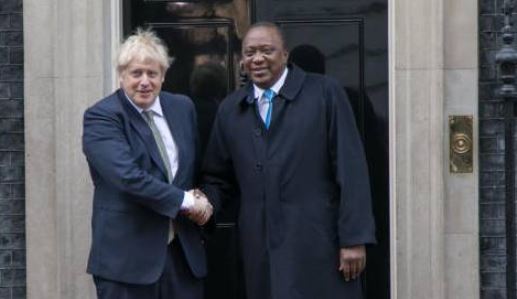×
The Standard e-Paper
Stay Informed, Even Offline

NAIROBI, KENYA: Kenya has secured a trade deal with the United Kingdom, which will enable Kenyan products to continue accessing the market even after the country has concluded severing links with the European Union.
Kenya products will continue accessing the UK market duty and quota-free, according to the Ministry of Industrialisation in a statement announcing that the two countries concluded negotiations Economic Partnership Agreement last week.